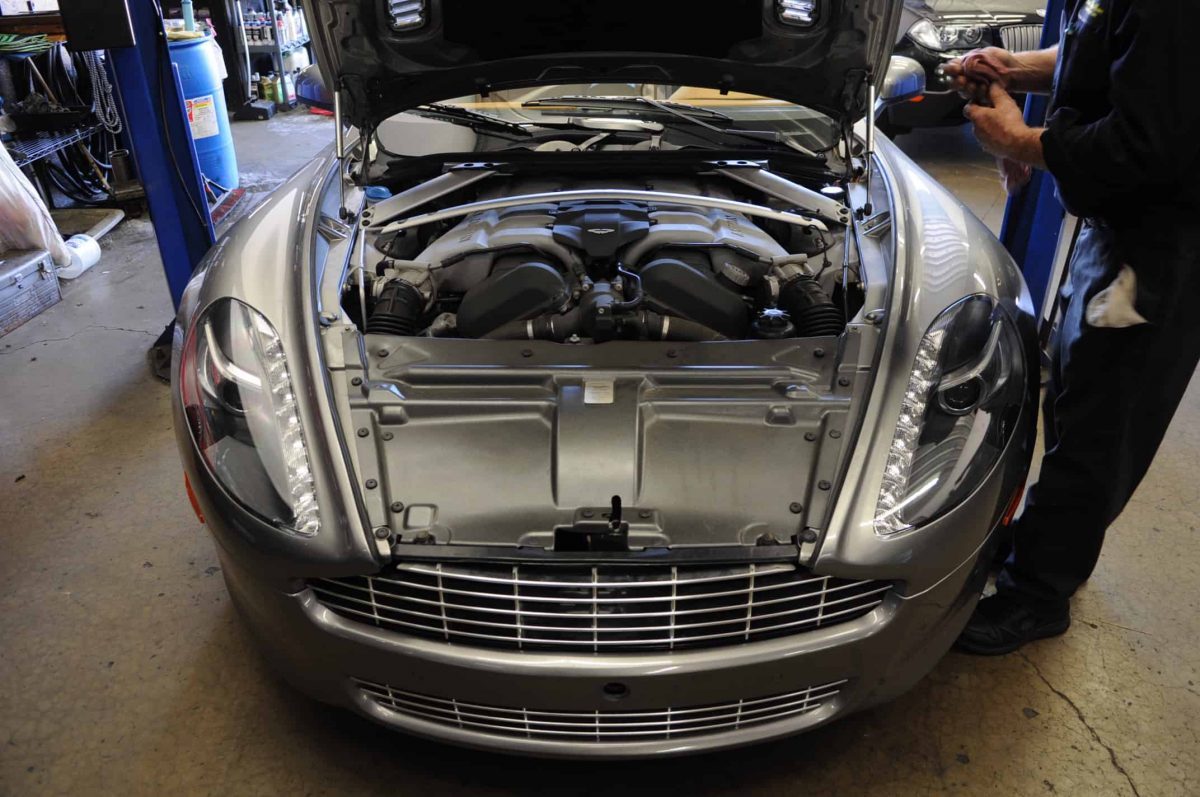Most new cars, particularly luxury European vehicles, feature highly technical computer systems called Advanced Driver Assistance Systems (ADAS). These systems include items like bumper sensors that beep or vibrate when you get too close to an object, lane departure warnings, or lights that alert you to the passenger-side airbag being enabled.
If you ever get into an accident, these systems are often a part of the damage – even though you cannot see it. In order to determine if one or more of these safety systems has been affected, your mechanic will likely run a diagnostic scan or calibration. These services not only ensure these systems are working properly but they will also help get your vehicle to pre-accident condition.
Here we will go over what diagnostic scans and calibrations are, and why you need them.
Diagnostic Scans: Defined
Diagnostic scans are like a health checkup for your car. Your technician will plug a scanning device (similar in appearance to a voltmeter or big remote control) into your car near the steering wheel. This diagnostic tool will look at all systems to determine what errors are present.
There are usually two scans performed: one before the repair so technicians know what to focus on, and one after the repair to ensure the problem has been properly addressed, says Carwise. If all systems are go, they will call you to come pick up your vehicle. If the scan reveals another problem, they will troubleshoot that issue until everything is resolved.
Calibrations: Defined
Your technicians will also likely calibrate your car as well, which is like a chiropractic visit for your vehicle. This calibration ensures all the systems are working as they should – specifically that all systems are aligned. If not, adjustments will have to be made.
Even a minor traffic accident can cause back-up camera systems, for instance, to get off-kilter and require adjustment. In this case, your technician will recalibrate the backup camera, then test it to make sure it’s back to working order. It’s vital that your backup camera is calibrated properly, because even if off by a millimeter, it can result in an accident since you don’t really know exactly how close you are to another object.
There are two main types of calibrations that may be performed:
- Static: Your mechanic will place your car on a level surface while at rest and measure specific elements with tools such as laser levels. This process can target differences of just millimeters or fractions of degrees.
- Dynamic: These calibrations involve testing your vehicle when in motion. Your mechanic will take your care on a test drive to see if all systems are working properly.
Both diagnostic scans and calibrations are all a vital part of the process of ensuring your vehicle is in safe, efficient condition. They’re important tools from a mechanic’s point of view because they are very helpful in determining the functionality of specific systems. Usually mechanics employ both types of scans for a fuller picture of the problem and appropriate resolution.
It’s all part of the troubleshooting process that most auto repair shops use for their customers. If you have been driving around and feel something is “off”, always bring it to your mechanic for a diagnostic scan and calibration. It will give you peace of mind. You should definitely do this any time you have been in an accident, even a minor one.
Your safety is of paramount importance, and diagnostics scans and calibrations don’t take a long time to complete. Just give your local mechanic a call and schedule an appointment.
Contact Hance’s European
Here at Hance’s European, we specialize in electrical system diagnostics and repair. Your luxury vehicle’s electrical system is critical in interacting properly with all other systems in the car. This is why you need regular accurate diagnostics and repairs to keep your electrical system running optimally. Please schedule your appointment by giving us a call at (214) 800-4571 or booking an appointment online.
We are always running specials to save you money, so be sure to ask when you call! For example, if you’re a new customer, you can cash in on up to $150 in savings, with 10 percent off any service or repair, including diagnostics and calibrations.


 BMW
BMW Mercedes
Mercedes Jaguar
Jaguar Land Rover
Land Rover Volkswagen
Volkswagen Porsche
Porsche Audi
Audi